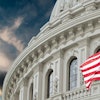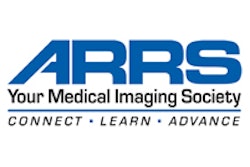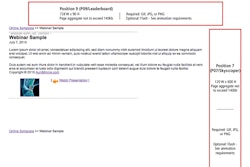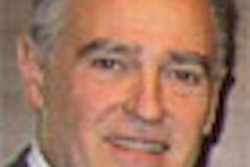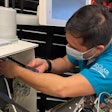NEW ORLEANS - If radiologists are to preserve their dominance in American medical imaging through political action, they want to succeed on the first try. At least that's the theory behind organized radiology's new escalation of efforts in Washington, DC.
In a presentation at this week's annual meeting of the American Roentgen Ray Society (ARRS), top leaders of the American College of Radiology -- the specialty's primary political organization -- described their latest actions to address radiology's basic dilemma: The spiraling growth in medical imaging costs, fueled disproportionately by other specialties.
Among the college's recent activities, as described by ACR chairman Dr. James Borgstede:
Hiring a bicoastal law firm, Crowell & Moring, to inventory all self-referral and certificate of need (CON) laws in the 50 states, "so that we can offer that information to states that might like to deal with this," Borgstede said.
Hiring the public relations firm of Powell Tate, founded by President Carter's former press secretary Jody Powell and Nancy Reagan's former press secretary Sheila Tate, to communicate the college's position to policymakers.
Meeting last week with U.S. House of Representatives Majority Leader Dennis Hastert (R-IL). Just last month Hastert was honored by the ACR's political action committee with its Congressional Award for Radiological Excellence.
College officials also met with Medicare officials to pitch the idea that federal imaging standards should be established with or without a specific request from Congress.
"From a federal regulatory point of view -- in other words, rulemaking -- the Centers for Medicare and Medicaid Services has significant control," Borgstede said. "That's what I articulated to them on Thursday."
CMS could implement something akin to the standards for imaging providers recommended to Congress earlier this year by the Medicare Payment Advisory Commission, he said.
Another viable approach would be for CMS to institute coding edits that would discourage economically motivated imaging, Borgstede said.
But what radiologists shouldn't expect to see is a repeal of the exemption that allows in-office imaging under the federal antiself-referral or "Stark" law.
Not only would such a move be opposed by an array of other medical specialties, but the Republican-controlled Congress is also uninterested in further regulation in that area, said ACR executive director Dr. Harvey Neiman.
"Even Mr. Stark himself told us, face to face, that Stark III was not possible," said Neiman, referring to Rep. Fortney (Pete) Stark, D-CA, author of the legislation enacted in two previous phases.
Having abandoned any notion of a Stark law change, the ACR's focus is on the promotion of imaging provider standards that would be implemented, ideally, by all private and public payers.
Those standards will be aimed at improving the quality, safety, and appropriateness of imaging, as the payers demand, Borgstede said. A key expectation is that standards will reduce costs by reducing the growth in self-referred imaging by nonradiologists.
But while a Republican Congress might theoretically be interested in cutting Medicare costs, a standalone bill directed at imaging standards is politically untenable.
"If we had a bill out there alone, it would very likely be defeated," Borgstede said. A more likely scenario would include the imaging standards within a larger bill.
In any case, making radiology's case requires the political capital that accrues from election campaign donations, Borgstede suggested.
The ACR's political action committee, known as RADPAC, is the fourth largest among medical specialty PACs and had $1 million available for campaign donations in the last election cycle. But radiologists also lag behind other politically influential groups, such as trial lawyers, in their per-person contributions to PACs, Borgstede noted.
As to when and how all the ACR's efforts might pay off, the future remains unclear. Quipped Borgstede in a postpresentation interview with AuntMinnie.com: "Stay tuned."
By Tracie L. Thompson
AuntMinnie.com staff writer
May 17, 2005
Related Reading
ACC, ACR debate stats on imaging growth, April 18, 2005
U.S. Congress hears debate over federal imaging standards, March 17, 2005
Cardiology leader slams ACR's imaging initiatives, March 10, 2005
ACR to pitch Congress on 'designated physician imagers' for Medicare, January 6, 2005
Radiologists (mostly) cheer as insurers set imaging rules, November 4, 2004
Copyright © 2005 AuntMinnie.com



